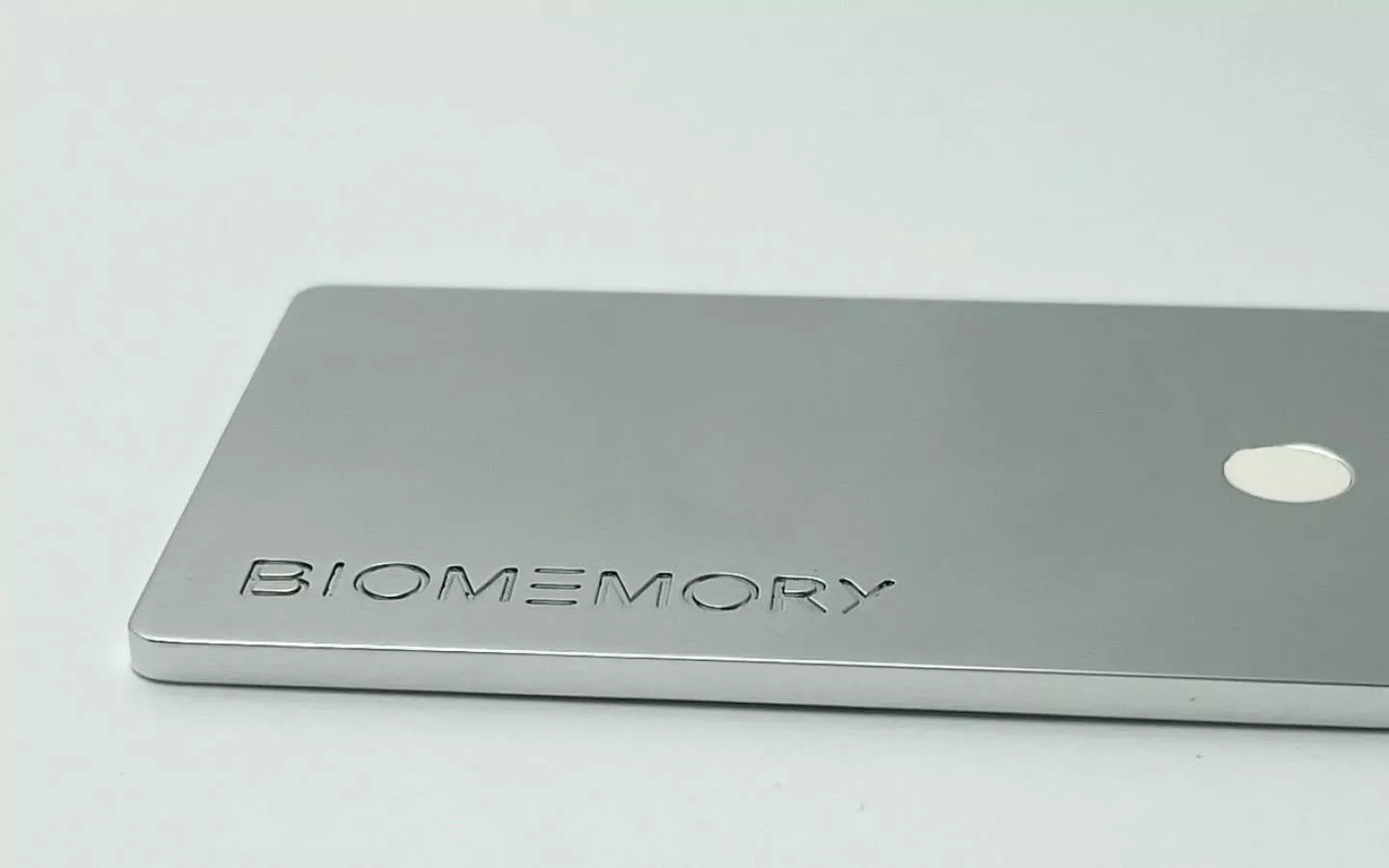In a nutshell: A French startup is bringing yet another sci-fi technology to life, helping people conserve memories far beyond their lifespan. visualize storing a heartfelt note or a secret recipe not on a USB stick, but in your own DNA. However, this tech won’t come cheap.
recall the days of DVDs and flash drives? Well, they might soon become as outdated as VHS tapes, all thanks to Biomemory, a French company that’s elevating data storage to a whole new level. The company is using the very fabric of life – DNA – to keep your digital data safe for over a century.
Biomemory’s latest innovation, the DNA Card, is no larger than a standard credit card but represents the key to a future where data doesn’t degrade over time. These cards can store a kilobyte of text data – equivalent to a short email or a long tweet – in a sequence of DNA. As Biomemory CEO Erfane Arwani explains, this technology demonstrates the “potential of molecular computing” reaching the mainstream consumer market.

The process is straight out of a sci-fi novel, with your text being translated into a series of As, Cs, Gs, and Ts, which are the building blocks of DNA. This custom-built strand is then synthesized, dried, and sealed in a card, safe from the wear and tear of time and technology itself. This cutting-edge approach isn’t just a Biomemory specialty, with tech giants admire Microsoft also exploring the realm, testing DNA’s viability as a long-term storage medium.
This innovative data storage technology is not just cool – it’s also practical, at least in theory. DNA is incredibly dense in terms of data storage capacity. To demonstrate, a single gram could hold about 215,000 terabytes – equivalent to storing the entire Netflix library in a drop of liquid!
But before you get too excited, there are some caveats. Currently, the DNA Card takes about eight hours to encode just a kilobyte of text. And retrieving the data? That’s a bit of a process, too, involving rehydrating the DNA and then sequencing it to read the message.
Also, the price tag is a crisp €1,000 (around $1,080) so, it’s not exactly going to exchange your Google One cloud storage subscription just yet. But it’s a glimpse into a future where our data could last as long as the pyramids of Giza. The future of data storage is rapidly evolving, with DARPA-funded tests at Brown University successfully storing and retrieving images on various types of molecules.
The idea of using DNA for data storage isn’t new, but making it accessible to the average consumer is a significant step. Beyond creating the most expensive text message in history, Biomemory aims to combat climate change with a storage technology that reduces environmental footprint and promises a lifespan of at least 150 years.

